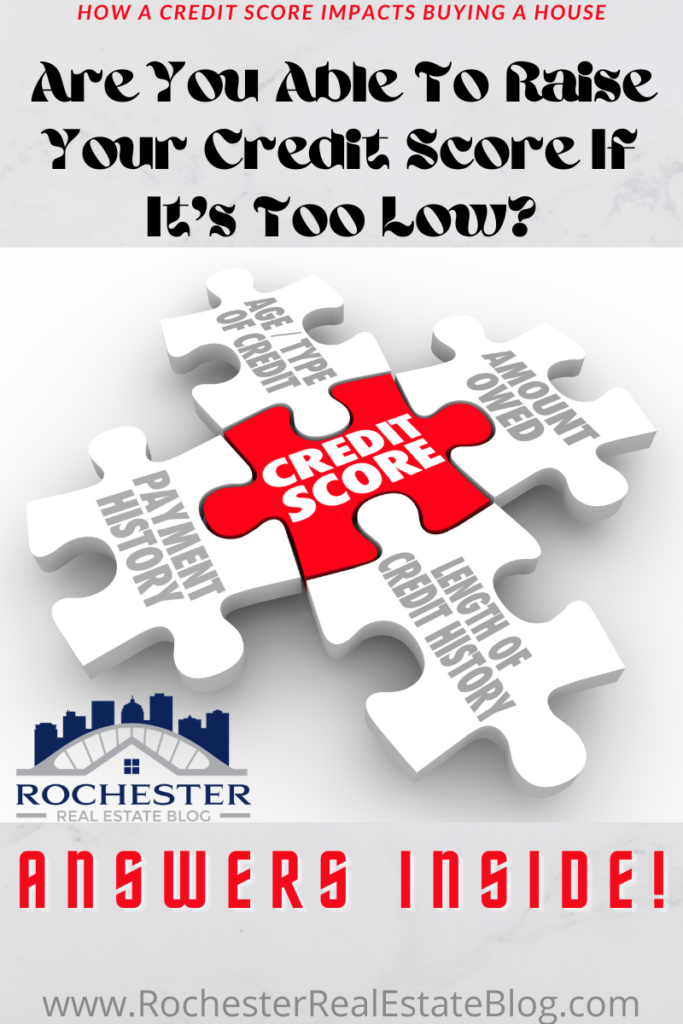How Your Credit Score Impacts Your Ability To Buy A House
Have questions about buying or selling a home?
Ask Now!
Buying a house can be a daunting time for everyone involved. Whether you’ve found your dream home yet or not, just the very thought of owning your own home is terrifying and exciting all at once.
If you’ve been living with your parents or renting for years, you will finally have a place to call your own. It will be freedom unlike any other. Paint the walls whatever color you want, leave your dishes in the sink, put the lounge in the corner of the room instead of the center. The options are endless.
But, with all of that excitement comes some serious financial responsibility, which is why you need to exhaust all options when it comes to financing. For most people, this means going through a bank and getting a mortgage, but to do so, you need to understand that the bank isn’t going to give money to just anyone.
When it comes to getting approved for a mortgage, one of the first things they will do is perform a credit check. This will play a large part in their determination of whether or not you are eligible for funding and if your credit check isn’t up to scratch, your chances of a home loan are minimal.
As Darren Robertson from Northern Virginia Home Pro says, “Buying a home is a huge decision and, as well as being exciting, it can be a very stressful time. This stress can be greatly eased by getting your credit score in check before shopping around, to avoid huge disappointments when you find the right property.”
So, what constitutes a good enough credit score to buy a house?
What is a credit score?
A credit score is a three-digit number between 300 and 700 that is calculated by companies like Equifax. Essentially, it is a numerical representation of your financial history and current financial health. Your credit score is calculated by an assessment of your finances throughout your life, including your payment history, your used and available credit, how long you have been using credit, public records, and inquiries into your credit file.
What’s good, bad, and average in a credit score?
So, what’s considered to be a good credit score, a bad one, or an average one? Find out below what typically constitutes for each!
Good
A credit score of 600-700+ is considered a ‘good’ credit score. This will enable you to obtain a loan more quickly and easily than someone with an ‘average’ or ‘bad’ credit score. This can mean lower processing fees, lower deposits, and lower interest rates. All good things if you’re looking for a mortgage. If your credit score is up around this figure, you’re doing something right.
Average
A credit score of around 550 is considered an ‘average’ credit score. Most people will have a credit score that ranges around this number, which may mean you’ll still receive some financial benefits from the bank when you go to apply for your mortgage. But it also means they won’t be as good as those with higher credit scores. It might not be ideal, but it’s not a disaster.
Bad
A credit score of around 300-400 is considered a ‘bad’ credit score and will likely negatively impact your financial prospects when buying a home. One important thing to note is that having a bad credit score doesn’t necessarily disqualify you from financing. You might qualify instead for a ‘bad-credit mortgage’, with higher processing fees, higher interest rates, and higher deposits.
How does it factor into a bank’s decision?
Banks take calculated risks with their clients when they offer to finance their home via a mortgage. Having an average or good credit score will be more positively received by a lender than having a bad credit score, obviously. However, banks may still take a chance, but it’s a risk on their part if you default on your mortgage.
What constitutes ‘good enough’?
Usually, for most financial institutions that lend you money, credit scores that are ~550 and above are considered good enough to qualify for traditional home mortgages. So, if you’re thinking of applying for a loan, try and make sure your credit score sits somewhere around 550 or above.
How can you raise your credit score if it is insufficient?

Let’s say your credit score is currently insufficient to qualify for a loan, and that your bank has turned you down. What are some ways you can raise that credit score so you can get that much-needed loan?
Review your current credit score reports
The best chance you have of improving your credit score is to firstly ascertain what you’re working with. You can request a copy of your credit report from each of the major national credit bureaus: Experian, Equifax and TransUnion. Even better, you can do this for free once a year via the Annual Credit Report website.
From these reports, you can see exactly what is helping or hurting your credit score. Factors that contribute to higher scores include low balances on credit cards, a history of on-time repayments, holding a mixture of credit cards, loan accounts and having made minimal new credit inquiries. Conversely, late or missed payments, collections and judgements, high credit card balances are major credit score damagers.
Prioritize on-time repayments
Over 90% of top lenders use FICO credit scores, which are comprised of five factors:
- Payment history – 35%
- Credit usage – 30%
- Age of credit accounts – 15%
- Credit mixture – 10%
- New credit inquiries – 10%
As you can see, the biggest impact on your credit score is your payment history, so a simple way to improve your credit score is to avoid late payments as a priority.
Keep your credit utilization to 30% or less
Credit utilization refers to the portion of your usable credit that you are utilizing at any given time. After payment history, this is the second most influential factor used in FICO credit score calculations. Wherever possible, keep your credit utilization at 30% or less of your available credit. Keeping it at 10% or less is ideal, but 30% is a solid starting point.
Aside from simply paying the bulk of your credit off, there are a couple of ways to get around this. Firstly, you can pay your wages into your credit card and pay for your living needs from it as you go – this doesn’t keep it low permanently but it at least minimizes it regularly. Alternatively, you can request a credit increase and then be sure not to eat into the new available credit.
Limit your new credit inquiries
Inquiries that can negatively affect your credit score are inquiries for credit such as credit cards, an auto loan, a mortgage or any other form of credit. The occasional application is unlikely to make any great difference, but multiple attempts within a short time frame can damage your score. So, if you are working on improving your credit, avoid any new credit applications for a while.
Improving your credit score is an important goal to focus on, particularly if you’re planning to apply for a major purchase loan, such as a new home or car. It can take several weeks or months to see any noticeable change to your score once you start taking the necessary steps to turn it around, so it’s best to get started immediately.
There’s no quick fix if your credit score is in the dumps, but, if you’re ready to buy a house, a consistent display of financial responsibility over a prolonged period may be enough for a bank to take a chance on you.
About the author: The above article on “How Your Credit Score Impacts Your Ability To Buy A House” was written by Rochester NY real estate agent, Kyle Hiscock, with RE/MAX Realty Group.
Since being launched in 2013, Kyle has published more than 150 quality, in-depth, and unique real estate related articles on the Rochester Real Estate Blog pertaining to topics varying from home selling to mortgages and everything in between! In addition to quality real estate related content, there are also many quality articles pertaining to the Greater Rochester NY area.
The Rochester Real Estate Blog has been recognized by many reputable websites as one of the best real estate blogs to visit and follow! In addition to being recognized as one of the best real estate blogs, Kyle has been recognized as one of the top Realtors on social media by several organizations and websites.
About Rochester’s Real Estate Blog: Rochester’s Real Estate Blog is owned and operated by Kyle Hiscock of the Hiscock Sold Team at RE/MAX Realty Group. With over 40 years combined experience, if you’re thinking of selling or buying, we’d love to share our knowledge and expertise.
We service the following Greater Rochester NY areas: Irondequoit, Webster, Penfield, Pittsford, Fairport, Brighton, Greece, Gates, Hilton, Brockport, Mendon, Henrietta, Perinton, Churchville, Scottsville, East Rochester, Rush, Honeoye Falls, Chili, and Victor NY.